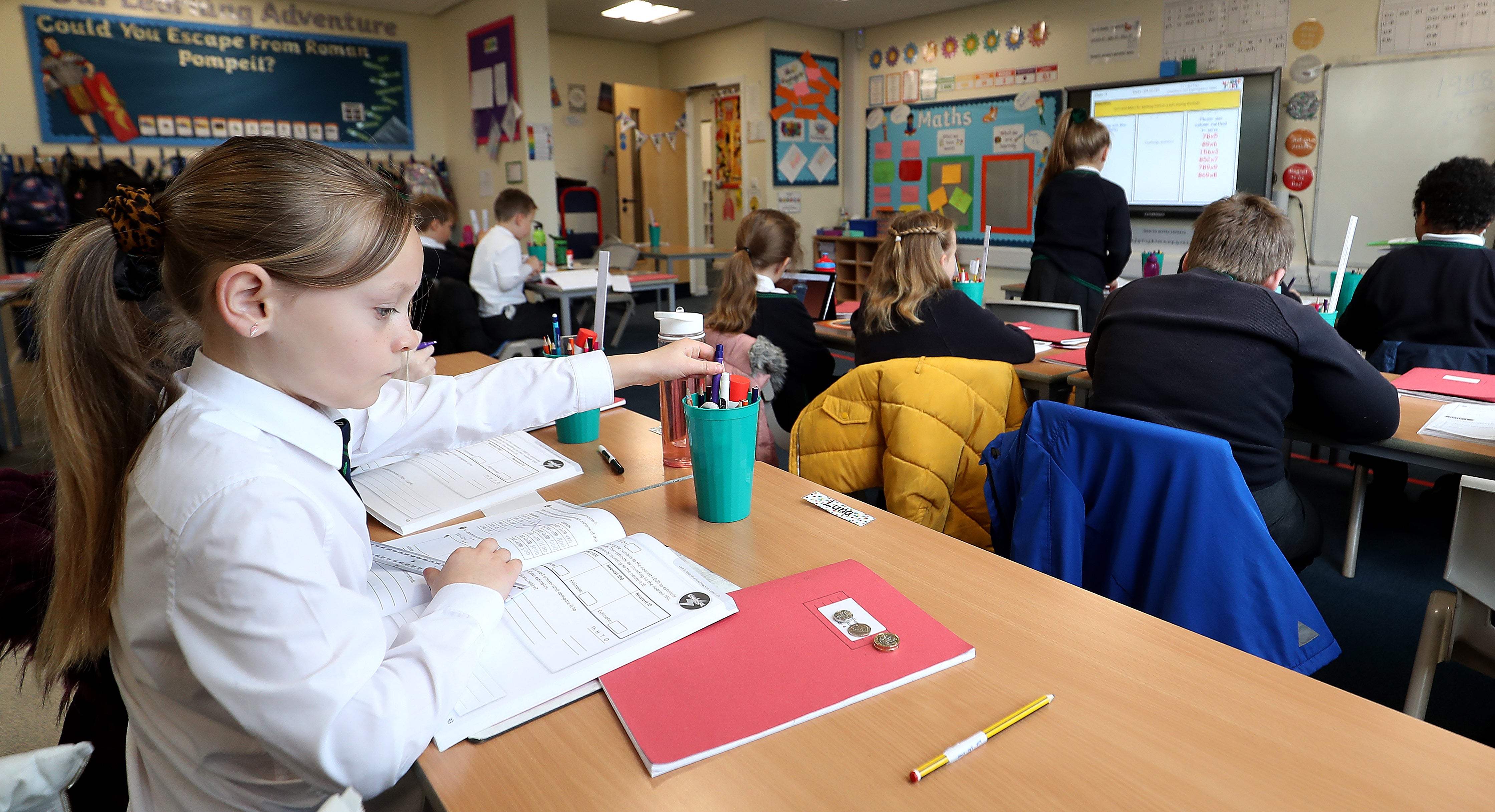Why maths for girls still doesn’t add up
When I grew up, boys were encouraged to take all kinds of further maths, girls were not, writes Chris Blackhurst. Have things got better? Statistically, perhaps. But why is it that so many girls – as good as or better than the boys – still drop maths after their GCSEs?


When I was at my single-sex grammar in the North of England plenty of my contemporaries studied maths and further maths to A-level. Some did additional maths. No, I never got it either: maths, further maths and additional maths.
The school also encouraged the three sciences and lots of boys went on to study for science, engineering and medical degrees that required the application of mathematics as well as degrees in pure mathematics.
Not so for the girls next door. Barrow-in-Furness Grammar School for Girls did not approve of its pupils taking maths beyond O-level, nor did it like them pursuing careers where advanced mathematical knowledge would come in handy. Instead, they were steered towards the arts and non-scientific subjects.
Neither establishment exists anymore (they were demolished years ago, to become a comprehensive) but the attitudes they fostered persist. Perhaps not as extreme as back then, but present, nevertheless.
Currently, more than 60 per cent of girls in the UK (excluding Scotland where maths must be taught until they leave at 18), drop maths after their GCSEs. This, despite girls doing on average as well or better in GCSE maths than boys.
It’s a crazy anachronism, one that needs correcting – which is why Maths4Girls is trying to do just that. Founded by two formidably successful businesswomen, Mina Gerowin and Sherry Coutu, Maths4Girls uses volunteers to hold sessions in class or over Zoom, with girls aged 11-14, to explain how they use maths in their careers.
Since its foundation in early 2020, during Covid, the campaign has notched up more than 200 state secondary school visits, involving 30,887 girls. “Feedback suggests that after a single role model session, approximately 10 per cent more girls plan on continuing maths past GCSEs,” says Gerowin.
Today, 10 October, Maths4Girls is celebrating Ada Lovelace Day, named after the 19th-century female mathematician and computer programming pioneer (she was the first to recognise that machines could do more than mere calculation). At Google’s London headquarters, 100 girls will hear from different role models about studying maths beyond GCSE and how they apply maths in their daily jobs.
Gerowin, an American, and Coutu, Canadian by birth but resident in the UK, had the idea when they talked about the difficulty of finding suitably qualified women. It was not something they were used to back home, where girls studied maths every year of high school. “In every other developed country in the world,” says Gerowin, “you must study maths and a science every year until you leave at 18. That’s not true here.”
A lawyer who went on to run the Paulson & Co hedge fund in London for John Paulson, the legendary multibillionaire investor, Gerowin found marked differences when she came to the UK. Coutu discovered the same in tech with her many angel investments.
“In New York and Paris there were women working in finance at senior levels. In London, there were hardly any – and those that were had to become one of the boys or they just would not survive. We simply could not hire women who had the standard of Maths we required, unless they were Scots or expatriates. There were very few from England, Northern Ireland or Wales.”
When she asked why, Gerowin was told that it was because they dropped maths after GCSE. “Girls don't realise or know that without maths, especially for many of the careers of the future, their options are severely limited. By contrast, less than 30 per cent of boys drop maths post-GCSE.”
So, with Coutu, a tech entrepreneur and angel investor, who had established Founders4Schools to promote the employability of young people in business, they set up Maths4Girls. “It’s a free programme available live or by Zoom in UK secondary schools that aims to persuade girls from 11 to 14 that maths is a necessary life skill which can open a multitude of futures for them. Our objective is to persuade girls to continue with maths post their GCSEs – be it A-levels, further A-levels, core maths or T-levels.”
They’re indoctrinated from early childhood to be anti-maths; they’re scared of it. After one session, 15 per cent on average change their view of maths, and 7 per cent gain in confidence.
“Our aspiration is to have every 11-14 girl in the UK see several role models from different fields of work in their classroom so that they choose to continue in maths,” says Gerowin. She adds: “But to do that, we need corporate sponsors, role models and schools. We need sponsors to donate funds as well as time for employees to be role models and schools to schedule sessions.” The volunteers sign up for eight sessions a year.
Rishi Sunak has made it a Tory policy that all pupils will study maths to A-level. Even if the Tories were to succeed in passing the necessary legislation, Gerowin estimates it would take five years minimum to get the number of maths teachers required to carry it through.
As for Labour, mandatory teaching of maths to A-level is not on their agenda. “The sad part is that Labour needs it more. It’s their districts where more girls don’t study maths.”
There is a definite divide between the private and public sectors. Private schools and private school parents encourage more girls to study maths, to go on to have careers in medicine but also in other areas where maths is useful. That is still not the case by and large with state schools in the poorest areas and their parents.






Join our commenting forum
Join thought-provoking conversations, follow other Independent readers and see their replies
Comments